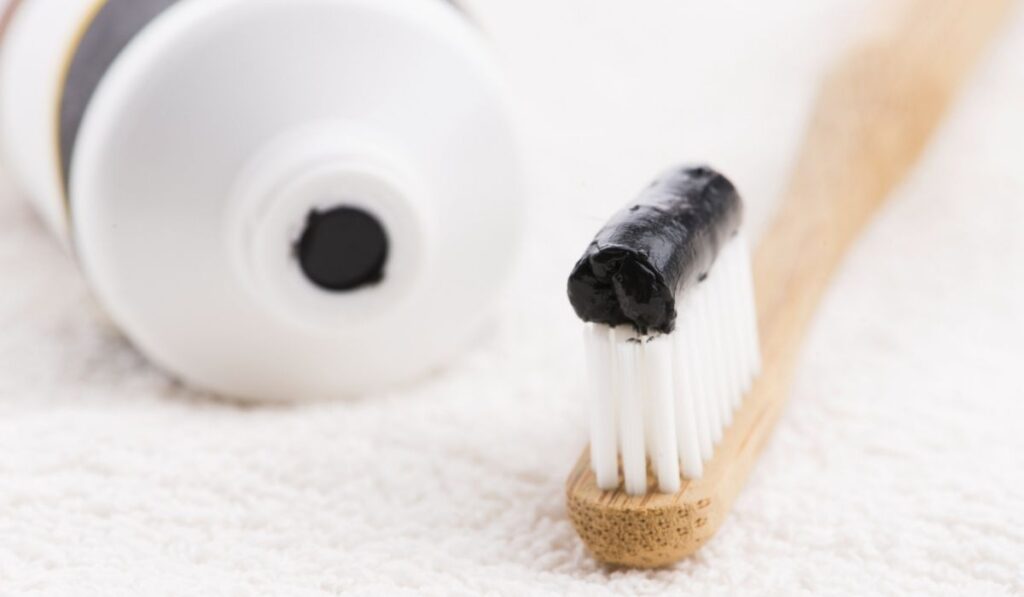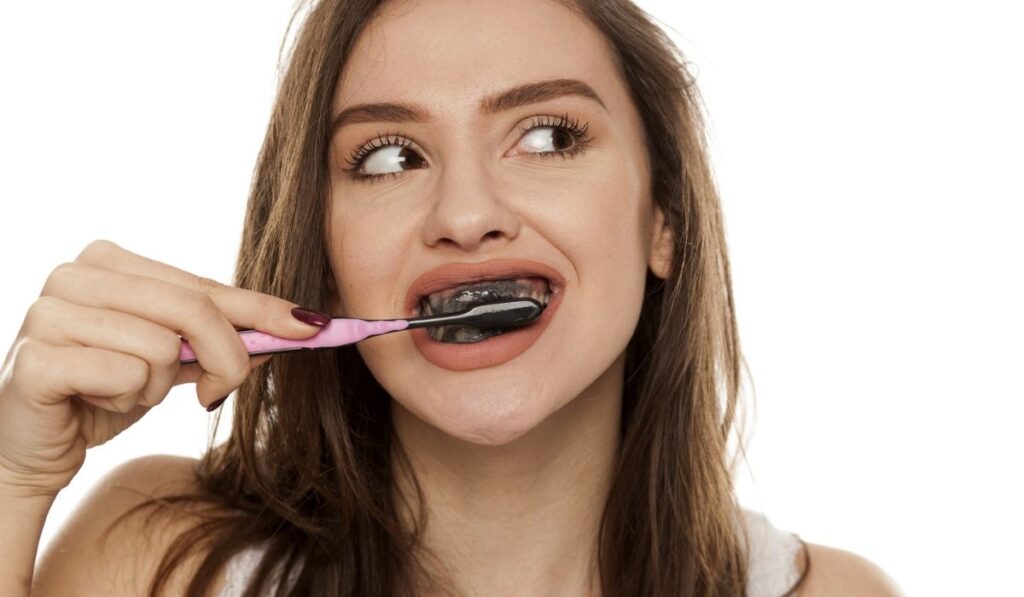Charcoal toothpaste has gained significant amounts of popularity and attraction in recent years. You’ll even see celebrities promoting different brands of the blackish goop on social media, claiming it works wonders. Unfortunately, this might not be the case.
It’s not recommended to replace regular toothpaste with charcoal toothpaste. Charcoal toothpaste doesn’t contain fluoride, which is crucial for fighting dental decay. Charcoal may also damage enamel and dental implants over time. Consult your dentist and use charcoal toothpaste sparingly.
Although charcoal toothpaste may at first sound like a miracle cure to stained or yellowing teeth, it’s important to consider the potential benefits as well as any downsides before you start using the product. Let’s take a look at what charcoal toothpaste does and whether you should use it regularly.
What Is Charcoal Toothpaste?

Charcoal toothpaste, like this one from Hello Oral Care (on Amazon), contains activated charcoal as a primary ingredient. Activated charcoal is a form of carbon with porous surface particles. The porous particles draw in and absorb other particles such as dirt, oil, and bacteria. When the toothpaste is rinsed away, so are the unwelcome particles.
Charcoal toothpaste is often advertised as a method for removing bacteria, stains, plaque, and tartar, as well as whitening teeth. However, some of the risks of charcoal toothpaste can include gum irritation and enamel erosion, and the lack of fluoride can cause adverse outcomes over time.
Does Charcoal Toothpaste Clean Teeth?
Although charcoal toothpaste is marketed as an amazing teeth whitening solution, it might not meet the expectations. This is because activated charcoal only fights extrinsic stains on the teeth, not intrinsic stains.
Extrinsic stains are on the surface of the teeth and can be caused by coffee, red wine, tobacco, etc. Intrinsic stains, meanwhile, are beneath the enamel layer and are typically caused by specific medications, trauma, or weak enamel.
Basically, charcoal toothpaste will clean your teeth and freshen your breath like any standard toothpaste. However, it won’t whiten your teeth below the enamel or provide you with a deep cleaning like the one you would receive at the dentist.
Is Charcoal Toothpaste Better Than Regular Toothpaste?
Charcoal toothpaste is not superior to regular toothpaste and should only be used under dentist supervision or as a supplemental cleaning agent. The main disadvantages to charcoal toothpaste are the lack of fluoride, the harmful effects on implants, and its abrasive texture.
Nearly every dentist will recommend fluoride for protecting teeth. Nonetheless, most charcoal toothpaste mixtures lack fluoride. Fluoride is crucial for fighting dental decay and is a necessary component of dental health.
Charcoal toothpaste can also get caught in dental fillings and implants if used too often. It can be challenging to remove the charcoal once it’s caught between the fillings or implants, resulting in gum irritation and painful symptoms. Dental implants, fillings, and restorations can also become stained from prolonged use of activated charcoal.
The last downside to charcoal toothpaste is the abrasive and gritty texture. The higher levels of abrasion can chip away at enamel over time. Enamel loss is permanent and causes sensitivity, discomfort, and in some cases, adverse health complications.
Can You Use Charcoal Toothpaste Every Day?

Generally speaking, charcoal toothpaste is not recommended or intended for everyday use. Charcoal toothpaste is meant to be used as a supplement for regular toothpaste, not as a replacement.
Activated charcoal toothpaste typically lacks fluoride, which is crucial to protecting your teeth against decay. The abrasive texture is helpful for fighting surface stains but can damage your enamel over time.
Instead, use charcoal toothpaste sparingly. Be sure to use a soft-bristle toothbrush (on Amazon) and make a conscious effort to brush gently when using activated charcoal. Always rinse your mouth out thoroughly after using activated charcoal. Be sure to consult your dentist beforehand if you’re unsure or If you have dental implants, fillings, or restorations.


